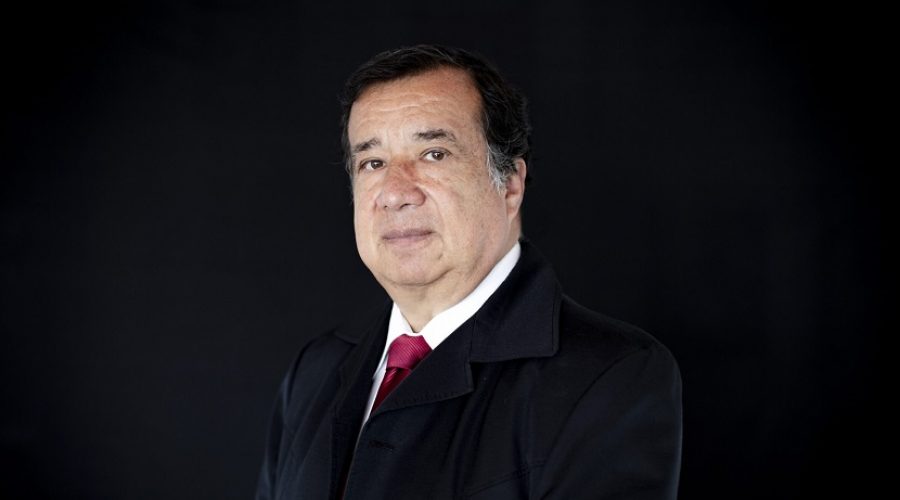Interview with Reinaldo Villalba on the „historic“ ruling by the Inter-American Court of Human Rights in the „CAJAR v. Colombia“ case
On 18 March 2024, the Inter-American Court of Human Rights issued a “historic” ruling in the “Case of the members of the Lawyers’ Corporation ‘José Alvear Restrepo’ v. Colombia”. The Observatory was very pleased to interview prominent human rights lawyer Reinaldo Villalba to understand the content, consequences and scope of this decision.
Reinaldo Villalba Vargas is a lawyer involved in the defence of human rights in Colombia. He has been a member of the well-known Colectivo José Alvear Restrepo (CAJAR) for over 30 years. Throughout his career as a lawyer, he has provided legal support to hundreds of victims of crimes against humanity and serious human rights violations.
Why do you consider the Inter-American Court of Human Rights ruling of 18 March to be “historic”?
This judgment is historic because it is the first to qualify the right to defend human rights as an autonomous right; because it reaffirms the State’s obligation to provide enhanced protection for human rights defenders and to provide guarantees for the exercise of the right; because the Court urges the State and all its authorities to exercise control over conventionality; because the judgment defends the right to self-determination in matters of information; because the Court orders the State to regulate and limit the activities of the State’s intelligence agencies; because it highlights the dangers of stigmatising human rights defenders; because it recognises the distinct effects on women and children of attacks on human rights defenders; because this decision has implications throughout Latin America and the world in terms of protection and guarantees for the exercise of the defence of human rights.
The judgment is a tool for all human rights defenders in their quest for guarantees to defend these rights. It has a regional scope and, I would say, a global scope, due to the geographical importance of the decisions of the Inter-American Court.
The facts recount 45 years of continuous harassment of human rights lawyers. How have the facts mentioned in the judgment evolved?
CAJAR has existed for 45 years, and there have been 45 years of attacks and persecution by the state, including through its paramilitary strategy. There have been various forms of persecution, including stigmatisation and defamation campaigns, sabotage of CAJAR’s sources of funding and litigation, infiltration by state intelligence personnel, surveillance, control and harassment, illegal intrusions into our homes for search purposes, illegal interception of our communications, arbitrary detentions, theft of information, attacks and illegal intelligence work against our families, including children, as well as threats and arbitrary detentions.
As a human rights lawyer, I was subjected to systematic threats, state surveillance and a judicial frame-up against me. I was even verbally attacked and defamed in the European Parliament in Strasbourg by the Colombian president at the time, Álvaro Uribe.
Many CAJAR lawyers have been subjected to this harassment. For example, lawyer Alirio Uribe was declared target number one by the DAS. Lawyer Soraya Gutiérrez has been the target of an assassination attempt and, more recently, her colleague Yessika Hoyos has also received death threats. For these situations and many others, the Inter-American Court’s ruling recognised the violation of 14 rights and ordered more than 15 reparation measures.
How did you experience the long process that led to this historic decision by the Court?
The Colombian judicial system has guaranteed impunity for the perpetrators, and despite having very precise information, there has not been a single conviction for all the attacks we have suffered over more than four decades. Faced with this systematic and widespread impunity, the CAJAR case was brought before the Inter-American Commission on Human Rights (IACHR) in 2000, and precautionary measures were adopted in 2002. The case was admitted by the IACHR in 2006 and the report on the merits was published in 2019. The case was submitted to the Inter-American Court of Human Rights (IACHR) in 2020 and, in October 2023, it handed down its judgment, which was notified to us on 18 March 2024.
For the members of CAJAR, it has been a lifetime of persecution and violation of our rights, a life of anxiety and anguish, a persecution that has extended to our families, the victims and the witnesses we accompany to court. The strategy of persecutionhas been compounded calculated strategy of impunity that has favoured the perpetrators and motivated the indefinite repetition of the attacks against us.
Are human rights lawyers still at risk in Colombia today?
Yes, defending human rights involves enormous risks for the integrity and lives of defenders and their families. Working with the constant risk of losing one’s freedom or one’s life is a reality in Colombia, even under the current progressive government, because the criminal structures rooted in the security forces and intelligence agencies survive, despite the efforts made to purge them.
We are well aware that this ruling will not eliminate the risk of practising as a lawyer. But we consider that the sentence, as well as being a form of reparation for the total impunity in Colombia, is undoubtedly a very important means of demanding protection and guarantees for the exercise of the profession of lawyer in the defence of human rights. The sentence requires monitoring by the State, which should lead to greater guarantees for the defence of human rights based on the practice of law.
It is very important that the international community maintains its interest in Colombia. International monitoring of the situation of human rights defenders in Colombia is crucial. Without this international support, many of us might no longer be alive.
We take this opportunity to acknowledge and salute those who have accompanied us in this dream of a better world, such as Peace Brigades International, the International Caravan of Lawyers, the International Observatory for Lawyers in Danger and so many other organisations.

